Best Electric Guitar Under 500 - Top Solidbody Options 2024
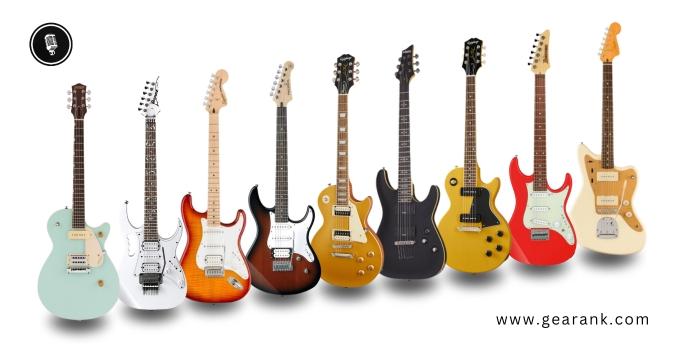
Best Electric Guitars under 500 - Pickup Type: Single Coil
Ibanez AZES31 (SSS)
Cons
- Smaller scale than typical Strats
- Not for fans of classic aesthetics
Pros
- Greater than the sum of its parts
- Stable and reliable fixed bridge
- Comfortable Neck profile
- Vintage sounding ceramic pickups
If you're not familiar with the nomenclature of Ibanez guitars, it usually refers to the body shape first (In this case, the AZ), followed by a sub-class for the body shape ("ES" for essential). Berklee College of Music Associate Professor Tomo Fujita designed the Essentials line.
The goal was to make cheap electric guitars that students could learn on without compromising function, playability, and tone. This line of instruments is meant to "grow" with the student.
The scale length is a PRS-like 25" scale, which departs from the typical 25.5" scale lengths of the typical "S" type guitar. This was meant to give younger players an easier time adapting to the guitar strings' tension.
The poplar body itself is slightly smaller and thinner than your average Strat. The shorter scale also encourages easier chording for fast changes. It also allows thicker strings to get a beefier tone without sacrificing playability.
It has a C-profile neck, which is uncommon for Ibanez. The 10" radius Jatoba fretboard is home to 22 medium frets. The fretwork on my unit was finished well with no sharp edges. I could set it to my standard 1.2mm action with no fret buzz.
As is the nature of guitars at this price, it is best to have your guitar professionally set up if you don't have the time to learn how.

A closer look at the bridge shows that the grub screws don't jut out of the saddles, unlike vintage-style saddles. While Strat purists would argue against this, the AZES31 wasn't designed to appeal to them, and this is a welcome change to the 6 saddle style.
Another piece of evidence that this is no ordinary Strat clone is its hardtail with no protruding grub screws. This gives you a comfy bridge to rest your hand on.
The AZES31 is an incredible guitar for rhythmic guitar playing. The ceramic magnet pickups sound and feel more vintage. This makes it perfect for muted chucking and tight clean interludes. With a bit of gain, the pickups take on a lot of attitude, thanks to their output.
The single coil tones remind me of a more muscular mid-60s Strat. It has a midrange push as opposed to the glassier sound of early specimens. The pickups don't have the harmonic complexity or clarity of vintage and aftermarket examples, but that's not what it aims to be.
The noise floor is lower, which encourages occasionally cranking the gain up. I've recorded some samples you can listen to in my Extended Ibanez AZES31 Review.

The mini-toggle enables alternate pickup configurations including neck-middle series, bridge-middle series, and bridge-neck telecaster style configurations.
Other features include a 5 way pickup selector switch that puts the bridge/middle or neck/middle pickups in a series. This simulates a humbucker. It also has a proprietary one-piece output jack design to avoid lost nuts and loose cables.
The AZES31 is an example of a quality Japanese guitar designed around a purpose and target. It's not meant to be the greatest tone machine, and it doesn't pretend to be.
It's more of an instrument that gets out of the way of growth for new players and provides experienced players like me with a fun little guitar to be inspired by.
Specifications
- Body: Poplar
- Finish: Vermillion, Ivory
- Bridge: 6-Saddle F106 fixed bridge w/ Comfort round Steel saddles
- Pickups: SSS (Triple Singlecoil)
- Neck: Maple
- Scale Length: 25"
- Fingerboard: Jatoba
- Fingerboard Radius: 10"
- Number of Frets: 22
- Nut Width: 42mm
- Controls: Volume, Tone, Series/Parallel alter sw.
- Pickup Selector: 5-Position Blade
| Website | Source | *Rating Value |
| Gearank | Raphael Pulgar | 93/100 |
| Lone Phantom | Editor | 94/100 |
Squier J Mascis Signature Jazzmaster (SS)
Cons
- May require setup out-of-the-box
- Minor cosmetic issues
Pros
- Ergonomically great. Balanced weight and cool-looking shape.
- Plays and feels like a US-made Jazzmaster when properly set up
- Surprisingly versatile tone, capable of good clean and distorted tones
- Good quality hardware
This signature model is designed with the Alt-rock icon J Mascis from Dinosaur Jr. It combines affordability with exceptional performance. It's an easy pick for those who want to diverge from the usual Strat and Les Paul-style guitars that permeate the sub-$ $500 electric guitar market.
It's not just about its eye-pleasing retro-style aesthetics. The J Mascis Jazzmaster features single-coil pickups that deliver a classic, crisp tone with a delightful touch of vintage warmth. Add the lead circuit switch with its volume and tone controls; you have more tone options. It's perfect for guitarists who are into exploring different musical genres.
Jazzmasters are notorious for confusing guitarists with their big-looking pickups. Even though they are big, they are still single coil pickups - and share the same sonic characteristics. It's too bad Jazzmaster pickups aren't the same size as P-90s, so you can't interchange them.
This guitar features a Jazzmaster-shaped basswood body paired with a comfortable-feeling maple neck. The C-shaped neck profile is paired with a 9.5-inch radius fingerboard. This configuration creates a smooth and enjoyable playing experience, accommodating various styles.
As expected from guitars in this price range, this guitar may benefit from a professional setup to optimize playability and performance. And when correctly set up, it plays and feels more expensive than it is.
It's interesting how the Squier J Macsis Signature appeals to a broad range of guitarists. You don't have to be a J Macsis fan to appreciate the musician friendly features of this guitar. This is proof of the guitar's quality and real-world effectiveness.
Specifications
- Body: Basswood
- Finish: Gloss Polyurethane
- Bridge: Adjusto-Matic with Vintage-style Floating Tremolo
- Pickups: 2X Jazzmaster Single-coil
- Neck: Maple
- Scale Length: 25.5"
- Fingerboard: Indian Laurel
- Fingerboard Radius: 9.5"
- Frets: 21, Jumbo
- Nut Width: 1.675"
- Controls: 1 x master volume, 1 x master tone
- Pickup Selector: 1 x Alter Switch, 5-way blade pickup switch
Pickup Type: P-90
Epiphone Les Paul Special TV Yellow (PP)
Cons
- Chunky neck, for those who prefer slim necks
- Can be a bit too bright colored for some
Pros
- Gritty P-90 tone - great guitar for rock music
- Vintage style TV Yellow color finish
- Surprisingly flexible in terms of tone
- Good build quality
The Epiphone Les Paul Special is a modern take on a classic instrument from the '50s, combining the latest guitar design and building technology with old-school looks.
At its core are two P-90 Pro Soap Bar single-coil pickups that give it a gritty midrange rich tone that works well for rock and similar styles of music.
As a rock instrument, its grit can be too much for musical styles that call for a clean tone.
The body is crafted from mahogany, shaped into the familiar single-cutaway LP shape with a flat top.
It has a mahogany neck topped by a 12" radius 22-fret fingerboard. It has a thicker Neck Profile similar to older instruments, but it may not appeal to those used to thinner necks.
Modern implementations include having a Graph Tech nut and CTS electronics, which improve the lifespan and taper of the potentiometers.
It comes with a "TV Yellow" finish, inspired by the old yellow wooden cabinets that old TVs were placed inside back in the day.
Build quality is quite good, giving this guitar aesthetics, tuning stability, and a playing feel above its price range.
This is why the Epiphone Les Paul Special TV Yellow was back-ordered for a while, but it's available again as of writing.
There's a reason why more and more people are lining up to get the Epiphone Les Paul Special TV Yellow; check it out if you're looking for an affordable P-90-equipped LP.
Specifications
- Body: Mahogany
- Finish: TV Yellow
- Bridge: Lightning Bar Wrap Around
- Pickups: (PP) 2 x P-90 PRO Soap Bar Single-coil
- Neck: Mahogany
- Scale Length: 24.75”
- Fingerboard: Indian Laurel
- Fingerboard Radius: 12”
- Frets: 22 Medium Jumbo
- Nut Width: 1.693”
- Controls: 2 x Volume, 2 x Tone
- Pickup Selector: 3-Way Switch
| Website | Source | *Rating Value |
| YouTube | intheblues | 90/100 |
| YouTube | The Guitaristas | 94/100 |
Pickup Type: Humbucker
Epiphone Les Paul Classic Worn 2020 (HH)
Cons
- Minor cosmetic flaws
- Split-coil tone is a bit thin sounding
Pros
- Vintage appeal with worn finish
- Complete Les Paul look with arched maple top
- Versatile dual humbucker with split-coil setup
- Smooth satin finish neck
The Epiphone Les Paul Classic Worn is a recent iteration of the iconic LP, combining vintage appeal with modern split-coil functionality. As the label suggests, it has a distinct worn finish that mimics the thinner, aged finish found in old vintage instruments.
It has a mahogany body that follows traditional Les Paul designs, complete with an arched maple top. Epiphone got the old-school look and vibe right and did so at a very accessible price point.
The neck is crafted from maple and topped by a 22-fret fingerboard. Interestingly, it comes with a thinner SlimTaper profile, which strays from what you'd expect from vintage LPs, but his slimmer profile combined with the smooth feel of the neck gives it a more relaxed modern feel that contrasts its classic appeal.
It draws its tone from two Alnico Classic PRO pickups, which do not stray from the fat and full sound of regular humbucker pickups; only this one allows for more flexibility via coil-split functionality.
Engaging coil-split is done via push-pull volume knobs. The resulting sound is thin and cannot replace single coils, but it is decent and workable.
Other noteworthy features include the use of Grover Rotomatic 18:1 tuners and GraphTech nut.
All these features make this guitar substantially better in terms of features than the typical affordable Les Paul.
Some even claim it can match the quality of more expensive Gibson Les Paul Studio models.
Still, expect this to have something other than high-end craftsmanship like those found in major guitar brands like Gibson.
Thankfully, cosmetic flaws are minimal, if not unnoticeable. Even a test model that I tried had good craftsmanship.
This is the best first electric guitar for fans of the Les Paul design and related musical genres.
If you want an affordable alternative to the iconic Les Paul with a distinctly vintage vibe, this is for you.
Specifications
- Body: Mahogany with Maple Top
- Finish: Worn Ebony, Worn Purple, Worn Metallic Gold, Worn Heritage Cherry Sunburst,
- Bridge: LockTone ABR Bridge with Stopbar Tailpiece
- Pickups: (HH) Alnico Classic PRO Humbucker
- Neck: Mahogany
- Scale Length: 24.75”
- Fingerboard: Indian Laurel
- Fingerboard Radius: 12”
- Frets: 22 Medium Jumbo
- Nut Width: 1.692”
- Controls: 2 x Volume (Push-Pull Coil Split), 2 x Tone
- Pickup Selector: 3-Way Switch
| Website | Source | *Rating Value |
| Trogly's Guitar Show | Editor | 90/100 |
Schecter Demon-6 (HH)
Cons
- For best results have it professionally set-up
- Shape and style may not fit some genres
Pros
- Striking aesthetics that fits its genre
- Great sounding pickups, with crisp bite and deep snarl for rock, metal, and similar styles
- Smooth and fast satin finished maple neck with angled heel
- Good build quality and hardware
The Schecter Demon-6 is an impressive super strat-style electric guitar that punches beyond its price tag. It's a great first proper guitar for metal and hard rock fans, and it impresses even owners of more expensive Schecter models.
For the price, you get a set of Duncan-designed active pickups, which offer a high output and articulate sound, perfect for achieving the heavy tones associated with various metal sub-genres. My only complaint is that the pickups don't clean up well, but you don't play these guitars for clean tones.
Another notable pro of the Schecter Demon-6 is its exceptional playability. The guitar features a sleek maple neck with a comfortable thin-C profile, allowing quick and effortless fretboard navigation. The 24 extra-jumbo frets on the wenge fingerboard provide ample range for expressive soloing and intricate riffing.
Have the guitar professionally set up to achieve an optimal playing feel. The extra cost is easily justified by the enjoyment you can get from the instrument.
Tuning stability is also commendable, thanks to its Tune-O-Matic bridge and string-through-body design. This configuration enhances sustain and contributes to the overall stability of the instrument, which is crucial for maintaining accurate pitch during intense playing sessions. The downside is the need for more tremolo, which can be necessary depending on your playing style. Note that a more expensive option with Floyd Rose is available.
Overall, the build quality is good, and everything feels solid. If you're looking for a good quality metal guitar, this is a compelling option in this price range.
Specifications
- Body: Basswood
- Finish: Gloss
- Bridge: Tune-O-Matic w/ String Thru Body
- Pickups: 2X Schecter Diamond Active HB-105S
- Neck: Maple
- Scale Length: 25.5"
- Fingerboard: Wenge
- Fingerboard Radius: 14"
- Frets: 24
- Nut Width: 1.653"
- Controls: Master volume, tone
- Pickup Selector: 3-way pickup switch
Pickup Type: Mixed HSS
Yamaha Pacifica PAC112V (HSS)
Cons
- Not for fans of traditional Strats
Pros
- HSS with split-coil bridge pickup control
- Alnico V pickups
- Good build quality
- Great value for the price
The PAC112V is part of Yamaha's Pacifica line of electric guitars. It is a modified Strat / Superstrat style guitar marketed for students of the instrument.
While it is very similar to the more affordable PAC112J, it features upgraded electronics, including Alnico V pickups, resulting in improved response and fuller tone.
Another important distinction is the humbucker pickup with coil-splitting, providing improved tone flexibility. With it, you can choose humbucker and single coil bridge pickup tones.
These features and good overall build quality make this quite a steal for the price.
On the flip side, these extra features will not appeal to fans of traditional Strats.
Its double-cutaway alder body is at its core, with more room for reaching the highest notes on the lower cutaway. The neck is crafted from maple and topped by a rosewood fretboard, with a familiar and beginner-friendly C-shape profile. Rosewood fingerboard is now hard to come by, as manufacturers opt for more economical alternatives.
If you want a versatile shred machine and rock guitar, check out the Yamaha PAC112V.
Specifications
- Body: Alder
- Finish: Natural, Violin Burst, Black, Red Raspberry, Silver, Sonic Blue
- Bridge: Vintage Style Tremolo with Block Saddles
- Pickups: Two Alnico V Singlecoils (Neck, Middle), One Alnico V Humbucker (Bridge)
- Neck: Maple
- Scale Length: 25.5”
- Fingerboard: Rosewood
- Fingerboard Radius: 13.75”
- Frets: 22 Medium
- Nut Width: 1.614”
- Controls: 1-master volume control, 1-master tone (push/pull coil-split), 5-way blade pickup switch
- Pickup Selector: 5-way toggle switch
| Website | Source | *Rating Value |
| Audiofanzine | igoig | 100/100 |
Squier Affinity Series Stratocaster FMT (HSS)
Cons
- Variability in quality control
- Fretwork inconsistencies
Pros
- Nice looking finish
- Smooth feeling neck
- Solid and stable tuners and bridge
- Good overall quality
- Versatile tone options
The Squier Affinity Series Stratocaster FMT (HSS) is slightly upgraded from other Affinity Series strats, with a nice looking flamed maple top (FMT) veneer and a versatile HSS pickup configuration.
It is a versatile option for fans of the original Strat design, with a humbucker pickup in the bridge position. This configuration provides a diverse tonal palette suitable for various musical styles. A 5-way pickup selector controls the pickups, so you still get the iconic neck and in-between position Strat tones while having a distortion-friendly humbucker bridge pickup.
On the hardware front, the synchronized tremolo bridge allows for expressive pitch modulation, catering to players who enjoy dynamic tremolo effects. However, extensive tremolo use can impact tuning stability, necessitating periodic adjustments.
The maple neck with a "C"-shaped profile delivers a comfortable and familiar playing experience.
Affordability is a notable advantage, making the Squier Affinity Series a cost-effective choice for those seeking the iconic Stratocaster sound without a hefty price tag.
While the guitar excels in affordability and tonal versatility, potential downsides include variability in quality control, a common consideration in budget guitars. Thankfully, issues are minor and fixed by adequately setting up the guitar.
The Squier Affinity Series Stratocaster FMT (HSS) is an excellent, affordable pick for those who want a genuine Strat with more versatile sonic options.
Specifications
- Body: Poplar
- Finish: Gloss Polyurethane
- Bridge: 2-Point Synchronized Tremolo with Block Saddles
- Pickups: 2X Ceramic Single-coil, 1X Ceramic Humbucker
- Neck: Maple
- Scale Length: 25.5"
- Fingerboard: Maple
- Fingerboard Radius: 9.5"
- Frets: 21, Medium Jumbo
- Nut Width: 1.650"
- Controls: 1 x master volume, 2 x tone
- Pickup Selector: 5-way blade pickup switch
Pickup Type: Mixed HSH
Ibanez JemJR Steve Vai Signature (HSH)
Cons
- Complex bridge setup
- Design can be over the top for some
Pros
- An affordable gem for shredders
- Easy and smooth playability
- Impressive craftsmanship and quality hardware
- Versatile tone options, beyond Steve Vai's signature tone
The Steve Vai signature JEM series represents the pinnacle of performance within the Ibanez lineup, and it continues to set the standard for innovative and high-performance electric guitars.
The Ibanez JemJR is a budget-friendly alternative to this iconic signature guitar, offering premium features without breaking the bank. Like its expensive siblings, the JemJR is made for speed, precision, and versatility, but this one is at a more accessible price point.
As expected from Ibanez, playability is super fast and easy, thanks to its Wizard III profile maple neck. The neck is bolt-on to a basswood body, and the 24-fret fingerboard features the iconic "Tree of Life" inlay design. I'm impressed at how smooth the neck feels for the price, which will appeal to fans of slim and fast-feeling necks.
The JemJR sports Quantum pickups in HSH configuration, allowing for high-gain-friendly neck and bridge tones. The single-coil pickup in the middle position allows for some chimney middle and in-between tones.
The hardware section is no slouch either, with Ibanez's Edge Zero II tremolo bridge allowing for advanced tremolo techniques while still keeping your strings in tune.
The JemJR, like many guitars in its price range, may require a setup to optimize playability further. And for better tone and response, the stock pickups can be upgraded to any of Steve Vai's signature pickups, like the DiMarzio Evolution.
In conclusion, the Ibanez JemJR is a budget-friendly gem for shredders. Its eye-catching design, versatile tonal options, and comfortable playability make it the best electric guitar under $500 with HSH configuration.
Specifications
- Body: Meranti
- Finish: Polyurethane Gloss
- Bridge: Double-locking Bridge
- Pickups: 2X Quantum Humbucker, 1X Quantum Single-coil
- Neck: Maple
- Scale Length: 25.5"
- Fingerboard: Jatoba
- Fingerboard Radius: 15.7"
- Frets: 24, Jumbo
- Nut Width: 1.693"
- Controls: 1 x master volume, 1 x master tone
- Pickup Selector: 5-way blade pickup switch
The Best Electric Guitars under 500 - Pickup Type: Other
Gretsch G2215-P90 Streamliner Junior Jet Club (FP)
Cons
- Some will want to shave off excess highs
- No bridge intonation adjustment
Pros
- Genuine Gretsch chime and growl
- Broad'tron + P90 Pickups
- Good playability
- Streamlined aesthetics
The G2215-90 is part of Gretsch's Streamliner line of affordable electric guitars. As the name implies, cosmetic appointments are streamlined, a departure from the usual flamboyant styles of Gretsch guitars.
It has a unique pickup combination - a Broad'Tron (FilterTron style) humbucker at the bridge and a P-90 soap bar in the neck position.
The bridge pickup is meant to provide the distinct high-end zing expected from Gretsch, while the neck pickup offers a fat and growling contrast. The pickups are mounted on a nato body that follows Gretsch's Jet Club single cutaway shape.
The neck is also crafted from nato and bolted onto the body. It has a thin U profile and features a 22-fret fingerboard. While the shape is slightly different, it is comfortable and easy to play.
Wrapping up its features is a compensated wrap-around bridge with ridges that help intonation.
Note that the trebly tone of Gretsch is not for everyone, but it can be versatile with the help of tone and EQ adjustments.
The Gretsch G2215-P90 is a great-sounding guitar for anyone who wants to try and experiment with non-conventional pickup configurations.
Specifications
- Body: Nato
- Finish: Mint Metallic, Single Barrel Stain, Sahara Metallic
- Bridge: Anchored Compensated Wrap-around
- Pickups: (FP) Broad'Tron Filtertron Bridge, P-90 Soap Bar Neck
- Neck: Nato
- Scale Length: 24.75”
- Fingerboard: Laurel
- Fingerboard Radius: 12”
- Frets: 22 Medium Jumbo
- Nut Width: 1.6875”
- Controls: 1 x Volume, 1 x Tone
- Pickup Selector: 3-way Toggle Switch
| Website | Source | *Rating Value |
| YouTube | Guitarist | 90/100 |
| Guitar World | Dave Burrluck | 90/100 |
| MusicRadar | Editor | 90/100 |
Things to Consider When Buying a Solidbody Electric Guitar
-
Many of the best guitars of all time all have one thing in common: good pickups. They place great importance on the types of pickups used. The most common pickups on electric guitars are Humbucking (double coil) and Single Coil pickups.
Single Coil pickups emphasize the upper frequencies, while Humbuckers have a rounder tone with more of the low-end. In addition to their expected characteristics, the position of the pickups and the way they are combined also affect the resulting sound.
FilterTron is another popular pickup type that is available in this price range. It is a staple pickup of Gretsch guitars and is a big part of their sound, which is described as a cross between a single-coil and humbucker pickup. Shape and size-wise, filtertrons are similar to humbuckers but have different dimensions. If you're guitar collection does not include a Filtertron equipped model, then definitely consider getting one.
The P-90 pickup is a single-coil pickup developed by Gibson that usually comes in the same shape and size as humbuckers. It continues to gain traction in the market because of its distinct grit and growl.
There are a few more pickup variations, but we've left them out because they are less prevalent in this price range. If you need help deciding which one to get, you can look at the configuration used by your favorite guitarists.
Here are some pickup configurations that can be found in the sub $500 price range:
- SSS - Guitars with three single coils, as seen on traditional Stratocasters.
- SS - Guitars with two single coils, as seen on Telecasters.
- HH - Guitars with two humbuckers as seen on Les Pauls, SGs, Super Strats, Flying Vs, and more...
- FF - Guitars with two Filter'Trons, most commonly found on Gretsch guitars but also on some Fender guitars - you can learn more in this article by James M Brill for Reverb.
- HSS - Guitars with two single-coils and a humbucker in the bridge position, as seen on some modern Stratocasters and Superstrats.
- HSH - Guitars with two humbuckers for the bridge and neck position and a single coil for the middle position, as seen on Super Strats and Custom Les Pauls. These are considered to be among the best deals in terms of pickup versatility.
- PP - Guitars with two P-90s for the bridge and neck position, can be usually seen on some SGs, and Les Pauls.
- HP - Guitars with a Humbucker for the bridge and P90 for the neck position. This is usually seen in custom models, but some manufacturers like G&L have incorporated this in affordable, mass-produced models.
- FP - Guitars with a FilterTron for the bridge and P90 for the neck position, this usually seen in custom models, and are sometimes used by Gretsch in their entry-level to mid-tier models.
In addition to the above configurations, technology has made it possible for humbuckers to sound like single coil pickups via Coil Tapping for more options in terms of tones. Another important consideration is the pickup setup. Strat owners, in particular, can benefit from Strat pickup height adjustments.
-
This is where the neck specifications come into play - which, when neglected, can result in an unpleasant playing experience for students and advanced players. Below, we've listed the four most important specs and a quick overview of how they affect playability.
- Scale Length - Guitar Scale Length is the distance from the nut to the bridge saddle where the strings are stretched. Physics dictates that the longer the scale length is, the more tension is required to get strings in tune. This is why some players prefer the "slack" feel of a Les Paul with its shorter scale length of 24.75". Others want the biting attack of the tighter strings on a 25.5" Scale Length Telecaster. You can go for a short-scale electric guitar for even more slack. A short-scale guitar have strings with lower tension, which makes it a suitable beginner guitar.
- Nut Width - dictates the space between strings at the nut. Those with smaller hands will appreciate smaller nut widths (1.65"), while others who prefer more room for their fingers will want the opposite.
- Fingerboard Radius - without going too technical, this specification describes how flat or round the fingerboard is. Generally speaking, the flatter the radius, the lower the string action, which means more effortless single-note playing and bending. On the other hand, rounder fingerboards follow the natural shape of the fretting hand, so they are more chord-friendly. Some players prefer the feel of vintage Fender guitars with a 7.25" radius, while others want slightly flatter ones at 9.5". Those who are into shred and modern rock usually go for flatter radius that range from 12" to 16". Compound radius fingerboards try to give players the best of both worlds by making the fingerboard flatter as you go up the neck, where you usually do your noodling.
- Neck Profile - describes the shape of the back of the neck. Together with the fingerboard radius and neck finish, it dictates the overall feel of the neck. Wide, thin neck profiles usually complement flat radius guitars, while rounder fingerboards come with U or C shape necks. Again, this is more a matter of preference than right or wrong. Also, part of the neck profile is the neck joint. The three most common types include bolt-on, set-neck, and Neck Through.
-
This price range improves bridge hardware quality over cheap electric guitar models, from the usual tune-o-matic style bridges to a licensed Floyd Rose bridge system for tricks like note dives and pull-ups.
While having a fancy tremolo bar system may be good, a few downsides include:- Tuning instability (Floyd Rose systems are better at preventing this),
- Inconvenient string changes, and
- A longer learning curve for its operation and maintenance.
Floating type tremolo bars are also usually paired with locking nuts, to help alleviate tuning related issues. The choice is up to you whether to go for simplistic tune-o-matic bridge setups or the more complex floating bridge ones.
-
The guitar's shape and Paint or Finish can spell the difference between a boring and an inspiring instrument, so it's better to get one that looks great and feels comfortable. Guitar players are drawn to the style of instruments that their heroes play, so they are your best starting point. But feel free to look at other styles. Note that it's unreasonable to expect premium cosmetics at this price point. So you'll usually find nice-looking tops, like flamed maple, are just veneer glued on the body.
Decades after they were first released, the Stratocaster, Telecaster, Les Paul, and SG are still the most prominent solid-body guitar shapes. Some have even adopted these shapes for bass guitars. While there are other more eccentric shapes meant for rock and metal guitars, most of what guitar builders produce today are either inspired by or a direct clone of these guitars. Semi-hollow variations like the Telecaster Thinline are also very popular in this price range, but our focus is only on solid-body guitars.
Pickup Configuration
Playability
Bridge
Body Shape and Finish
Best Electric Guitar Under 500 USD - Selection Methodology
The first edition was published in 2016. The current edition was published on Jan 10, 2024.
This guide aims to find the best solidbody electric guitars you can readily buy in the $200 to $500 price range. And to keep this guide focused, we decided to filter for highly rated solidbody 6-string electric guitars that are widely available from major online US retailers. This meant expensive guitars from premium guitar brands like Ernie Ball Music Man, PRS, Gibson, and others were not considered.
With these criteria in place, we ended up with 38 guitars on our shortlist for closer examination (see them in the database). We then gathered and analyzed over 16,485 reviews, ratings, and forum discussions, including the most recent ones.
All these data were then fed into the Gearank Algorithm, which resulted in rating scores out of 100 that closely represent how actual owners, users, and experts feel about the guitars. We used these ratings to cut down the list to just the very best, separated into pickup types used - Singlecoil, P-90, Humbucker, HHS, HSH, and a section for those with alternative pickup combinations. For more information about our methods, please read How Gearank Works.
About the Author and Contributors
Here are the key people and sources involved in this guide's production - click on linked names for information about their music industry backgrounds.
Lead Author & Researcher
Alexander Briones
I have been writing about and researching music gear for many years, all while serving as a music director at my local church. I engage in guitar playing and singer-songwriter stints, in addition to mentoring young musicians and teaching guitar and bass.
Having good quality instruments impact students in a big way, so I make it a point to give advice. My personal favorite in this price range are electric guitars from Squier and Gretsch. They provide good balance of playability, sound quality and visual appeal. I have helped many of my students buy their first proper guitars from these two brands.
Contributors
Raphael Pulgar: Ibanez AZES31 Review
Jerry Borillo: Product Research.
Jason Horton: Product research, Editing and Illustrating.
Media
Main/Top Image: Compiled using manufacturer photographs of the guitars. The videos have been embedded in accordance with YouTube's Terms of Service.
Image Credit: The individual product images were sourced from websites, promotional materials or supporting documentation provided by their respective guitar manufacturers, except for the Ibanez AZES31 Bridge and Toggle photos that were taken by the author of that review.




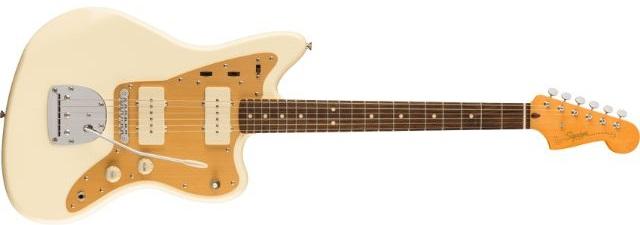



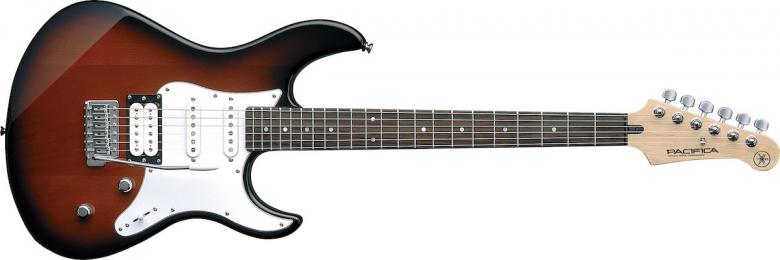
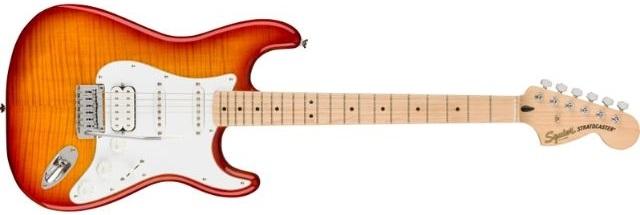

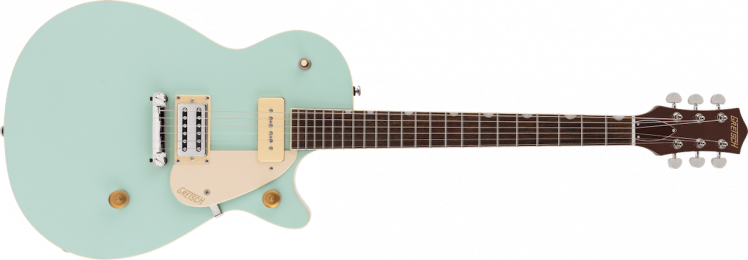
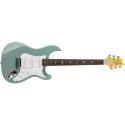


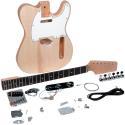
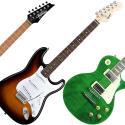
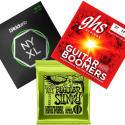
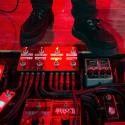
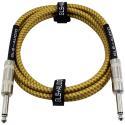


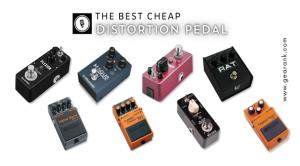
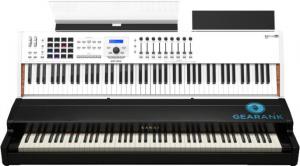
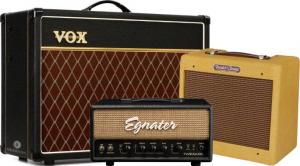
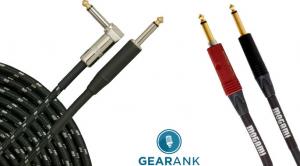
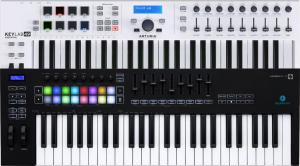
Comments
The following guitars came
Submitted by Alexander Briones on
The following guitars came off the recommended list above, due to being out-ranked, when we published our January 2024 Edition:
The following guitars came
Submitted by Jason Horton on
The following guitars came off the recommended list above, due to being out-ranked, when we published our August 2022 Edition:
We've removed the following
Submitted by Jason Horton on
We've removed the following guitars because they can no longer be bought for less than $500:
We've removed the following
Submitted by Jason Horton on
We've removed the following guitar due to it being discontinued: G&L Tribute Fallout.
We have removed the following
Submitted by Jason Horton on
We have removed the following guitars from the recommended list above due to them being discontinued:
Publication of our May 2021
Submitted by Jason Horton on
Publication of our May 2021 Edition resulted in the following guitars coming off the recommended list above, but you can still see our analysis of them:
We have removed the Gretsch
Submitted by Jason Horton on
We have removed the Gretsch G5220 from the recommended list above due to a price increase putting it over the $500 limit for this guide.
As a result of our June 2020
Submitted by Jason Horton on
As a result of our June 2020 update, the following guitars came off the recommended list above, but you can still see our analysis of them:
Today we removed the
Submitted by Jason Horton on
Today we removed the following guitar from out recommended list above due to a lack of availability: Fender Modern Player Telecaster Plus (HSS).
As a result of our March 2019
Submitted by Jason Horton on
As a result of our March 2019 update the following guitars came off our recommended list above, but you can still read our analysis of them:
Today we removed the
Submitted by Jason Horton on
Today we removed the following guitars from our top picks list above, but you can still read what we have to say about them: